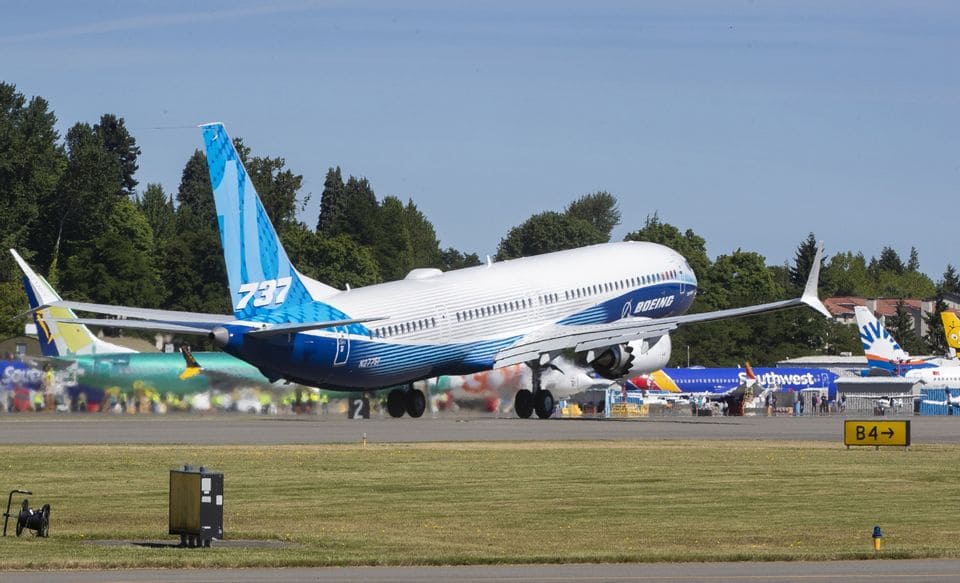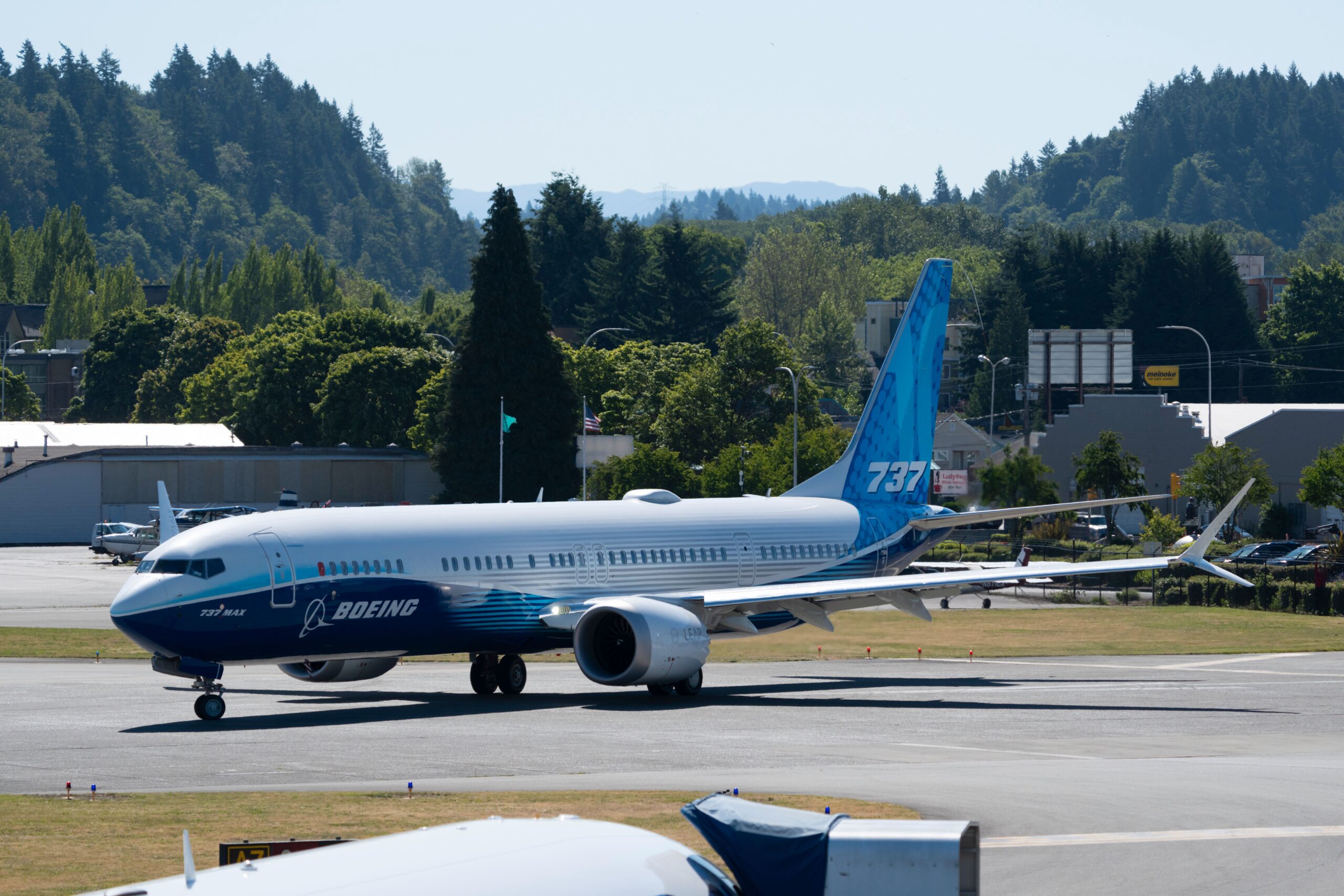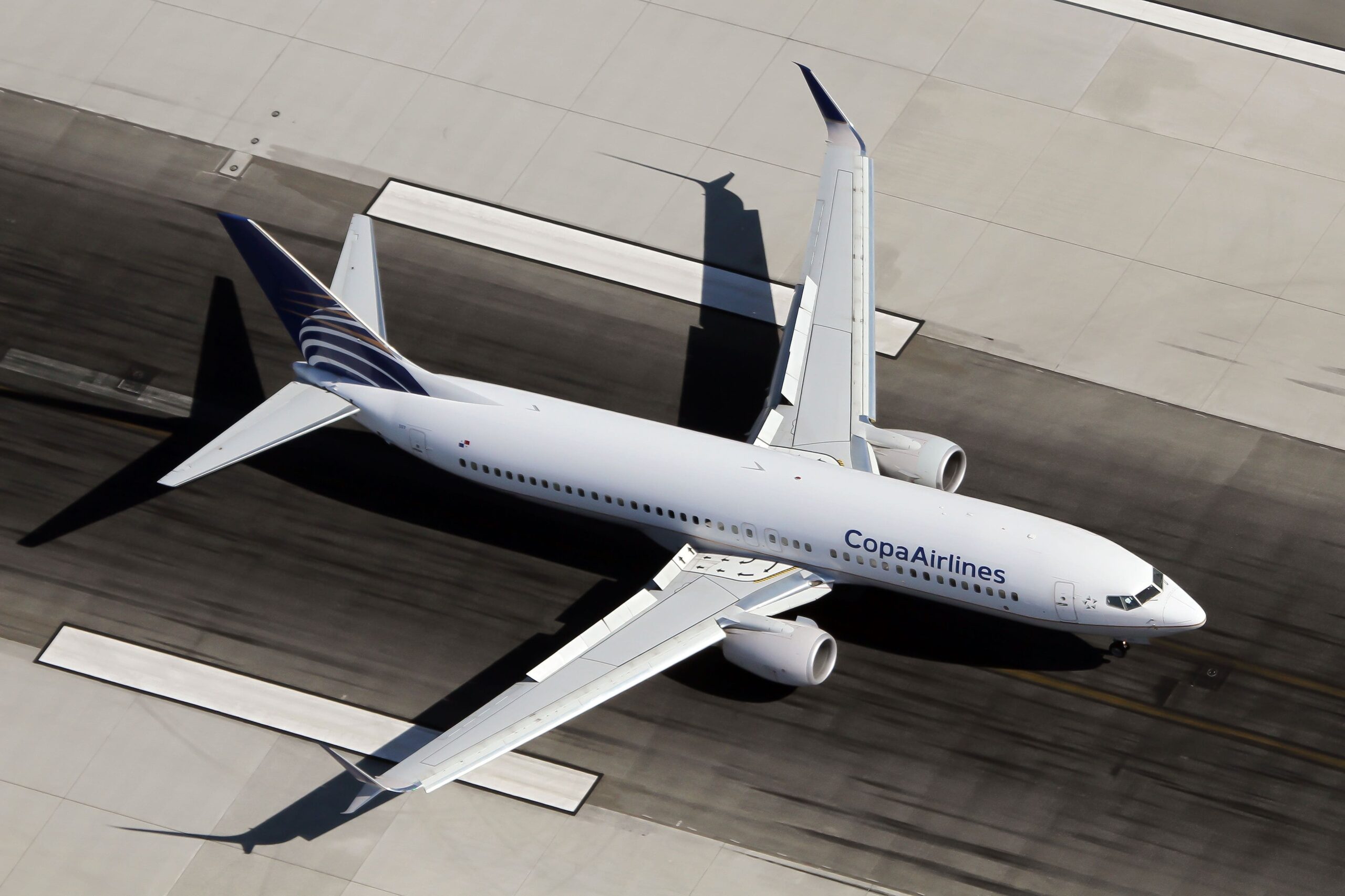Boeing could be looking at an exemption from safety rule by the Congress on its MAX 10.

The certification of the Boeing 737 MAX 10 could drag beyond 2022, forcing the American manufacturer to update the aircraft cockpit systems. According to local reports, Boeing is worried about this possibility and may turn to the US Congress for help. Let’s investigate further.
What’s going on?
Boeing could miss the December 31 deadline to certify the largest 737 MAX variant, the MAX 10, triggering what has been described as a new tighter safety requirement, which has been declared impractical by the US manufacturer, setting apart the MAX 10 from the smaller versions, the MAX 7, 8, and 9.
As reported by The Seattle Times, Boeing wants to certify its 737 MAX 10 variant without the latest safety standards on the design of cockpit crew alerts warning pilots of some system malfunctions while flying. The previous MAX variants were certified that way. In late 2020, the US Congress passed the Aircraft Safety and Certification Reform Act, updating the Federal Aviation Administration’s (FAA) oversight process. This law forces any airplane certified after December 31, 2022, to comply with the latest FAA crew alerting regulation.
In the last three years, the FAA has tightened its certification process, slowing down Boeing’s MAX 7, MAX 10, and 777X certifications, as well as the certification of new 787 Dreamliner aircraft.
Missing the deadline would force airlines to provide separate pilot training for the MAX 10, raising costs. Since Boeing designed the 737 MAX family, one of the company’s main objectives has been for airlines to avoid separate pilot training (first from the previous 737 NG family and now between MAX variants), increasing the overall cost of acquiring the aircraft.
According to data provided by ch-aviation, Boeing has received orders by 12 carriers acquiring a total of 673 MAX 10 units. The airlines that have ordered the aircraft are Alaska Airlines, Copa Airlines, Donghai Airlines, flydubai, GOL, Lion Air, Okay Airways, SkyUp Airlines, United Airlines, VietJetAir, Virgin Australia, and WestJet.

What could Boeing do?
According to local reports, Boeing’s lobbyists could ask for congressional action. The company would be looking for a legislative amendment extending the deadline past December 31, allowing the company to maintain the previous certification requirements.
In the end, allowing Boeing more time to complete the certification of the MAX 10 would be a decision taken by the Federal Aviation Administration (FAA).
In a statement on the subject, Boeing said,
“We continue to work transparently with the FAA to provide the information they need, and we are committed to meeting their expectations to achieve 737-10 certification.”
Boeing is currently looking to certify the MAX 7 and MAX 10 variants. It is expected the MAX 7 to be certified in 2022, but the process for the MAX 10 seems to be trickier and could miss the 2022 mark.

What would change if Boeing fails to meet the deadline
The Aircraft Safety and Certification Reform Act was a bill promoted by the US government to reform the aviation safety process after the two MAX crashes in October 2018 and March 2019. Essentially, the bill reduced the influence of Boeing and other aircraft manufacturers in the aircraft certification process and provided the FAA with more room to work with.
This is where the story intersects with the Engine Indicating and Crew Alerting System (EICAS), a system that complies with the new FAA regulation. EICAS tells the pilots what’s wrong onboard an aircraft and instructs them how to resolve the situation. Among Boeing’s aircraft families, the 737 is the only one that doesn’t meet the EICAS standard.
As reported by The Seattle Times, it is difficult to update the 737 cockpit to comply with the EICAS due to the many inherited systems from the original design.
Nonetheless, the MAX 10 has followed a much stricter certification process, making it much safer than other previous aircraft and perhaps creating a good case for Boeing lobbyists to push for a deadline extension and avoid installing the EICAS on the MAX 10.
What’s your take on the subject? Let us know in the comments below.
Source: Simple Flying

Warning: Illegal string offset 'cookies' in /home/u623323914/domains/eng.bayviet.com.vn/public_html/wp-includes/comment-template.php on line 2564